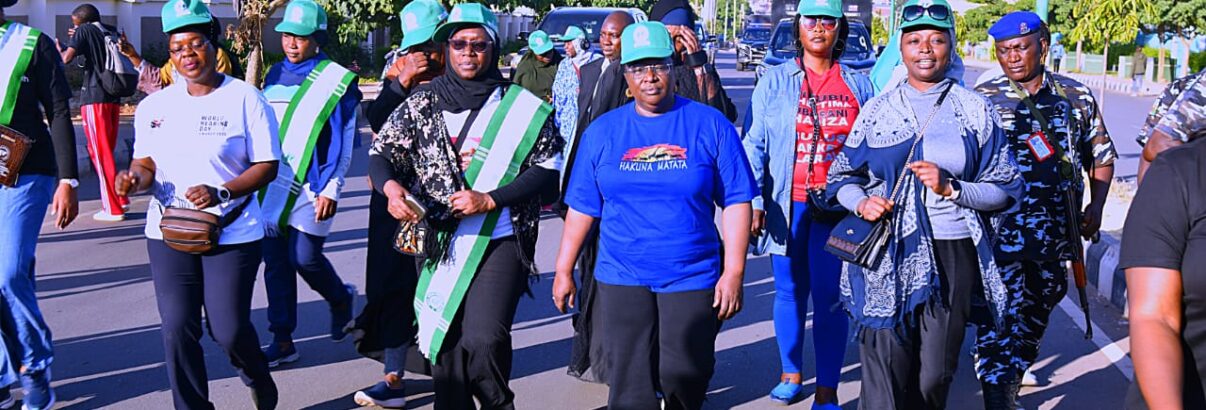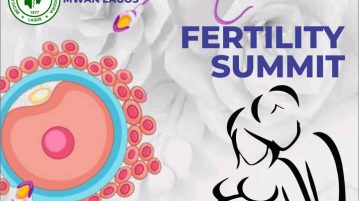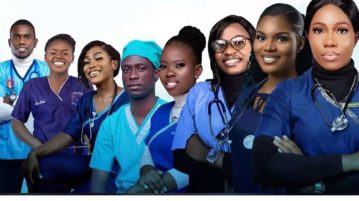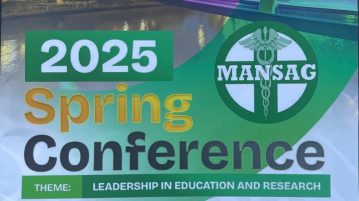Traditionally, in Medical Women’s Association of Nigeria (MWAN) across all states, every biennium is brought to an end and a new one begins at the biennial general meeting and scientific conference.
Ushering into the 2023 – 2025 biennium, MWAN Kaduna State Branch held her Biennial General Meeting (BGM), Scientific Conference and Investiture of her 9th President (Dr Aisha Mustapha) on the 8th and 9th of December 2023. With the theme, “Diversification in the health sector in the Era of economic challenges” and the subtheme, “Bridging the gap in cervical cancer prevention; HPV vaccine for young girls”.
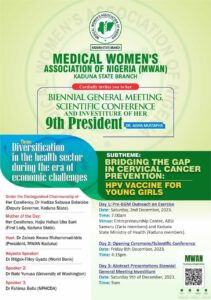
During the opening ceremony on day 1 of the conference, the outgoing President of MWAN Kaduna for the 2021 -2023 biennium, Dr Zainab Muhammad-Idris Kwaru (who has become the MWAN National President-Elect for the 2023 -2025 biennium) in her welcome remarks warmly welcomed the dignitaries and guests, calling all participants to actively join on the journey of knowledge sharing, while embracing unity, diversity and inclusivity amongst us as medical practitioners and a nation.
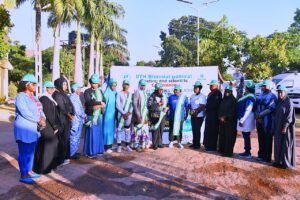
Following the keynote speech by the keynote speaker from World Bank, Dr Rabi Yunusa in her lecture on the theme explored different ways for service delivery to drive efficiency in healthcare, some of which include leveraging task shifting and sharing channels. For instance, if people can’t afford clinic services, well organised outreaches and campaigns can be used to deliver those services to them.
She further emphasized that, making our healthcare services efficient, doesn’t mean overhaling our current system. But we can achieve efficiency by ensuring a combination of certain factors to improve our service delivery.
On diversification to combat the current harsh economic realities of the nation, she highlighted some paths that can be explored to gain more financial freedom, in addition to our income from clinical practice as medical professionals. Some of the examples she cited included: collaborating with other healthcare professionals to start a niche healthcare clinic e.g. in urgent care, setting up clinical rehabilitation centres, adult nursing homes, diagnostic centers etc. As well as collaborating with other doctors to start whole health system structure i.e. Group Health. Reiterating that, “if private practices are able to get it right, they’d be decongesting the public health sector, and this would be better for the general public”.
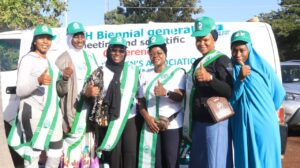
Likewise, collaborating to start an innovative school such as health sciences training schools, medical science track secondary schools or preparatory schools, and even special needs schools or disability services facilities can be explored. As she believes that doctors and specialists are in the best positions to open these special needs school and provide healthcare services to them.
Notably, according to statistics, ~ one billion people or 15% people have disability across the world and this figure is higher in developing countries. Although, the advent of NGOs helps to plug this hole and many other holes within the health system; their scattered activities also fragment the health system. Therefore, strategic involvement of medical professionals and healthcare practitioners in these various service delivery schemes can help buffer the fragmentation and increase service delivery efficiency across the system.
On accessing funds to set up the mentioned equitable partnerships and corporations e.g. Clinics, Group health, Schools; one of the means expatiated was taking bank loans and leveraging bank credit. This is because the health and education sector have above average bank loan approval probability, as the essential and foundational services provided by these enterprises are always in high demand. Further stating that some banks have specific focus on health care investments such as Access, Stanbic IBTC, first bank and the likes. She concluded this by emphasising, “Always borrow from banks! Avoid online loans!”
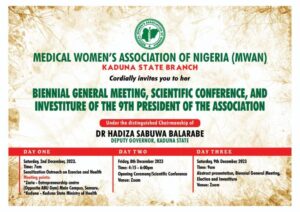
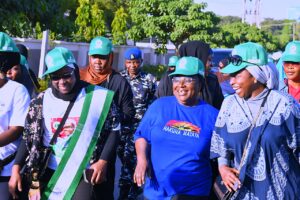
Also, she mentioned the possibility of opportunities within the university system. By encouraging universities to open up adjunct roles in faculties to support teaching and trainings, as well as giving qualified and willing people affiliate positions to get research grants. Especially towards diversifying into the clinical research organisations (CRO) – a 73 billion worth industry which is almost non-existent in Africa. Further expounding, that CROs help to study drugs, their effects and outcomes across different population. And although capitalist, the “big pharma” industry is well funded, with a huge positive impact on healthcare that cannot be undermined.
Hence, as medical professionals, we can be the middleman supporting our people’s health for the greater good – by getting the research work done in the most acceptable ethical and ethnomethodological means – and making extra income while at it.
Speaking with one of the newly inaugurated executives for the MWAN Kaduna 2023-2025 Biennium, Dr Rukayyah Abdulrasheed (Young Doctors’ Forum Coordinator) highlighted the pre-BGM health walk for Sensitization on Exercise carried out by the association, as part of the biennial activities in both Kaduna and Zaria Zones on Saturday, 2nd of December 2023. And the health walk commenced in Kaduna following the declaration by Her Excellency, the Kaduna State Deputy Governor – Dr Hadiza Sabuwa Balarabe – who also participated in the Walk.
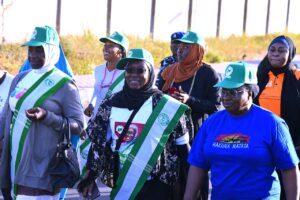
Furthermore, as a staunch advocate for maternal and reproductive health among women and girls, beyond championing HPV vaccination among these population, one of her plans for the biennium is to create a blood bank and blood donation drive specifically set to cater to women and girls in obstetric and other maternal health related emergencies across the state.
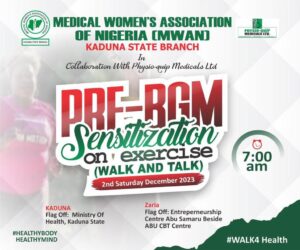
Editor’s note:
This report was collated by Medical Mirror Correspondent, Dr Mary O. Agoyi.

